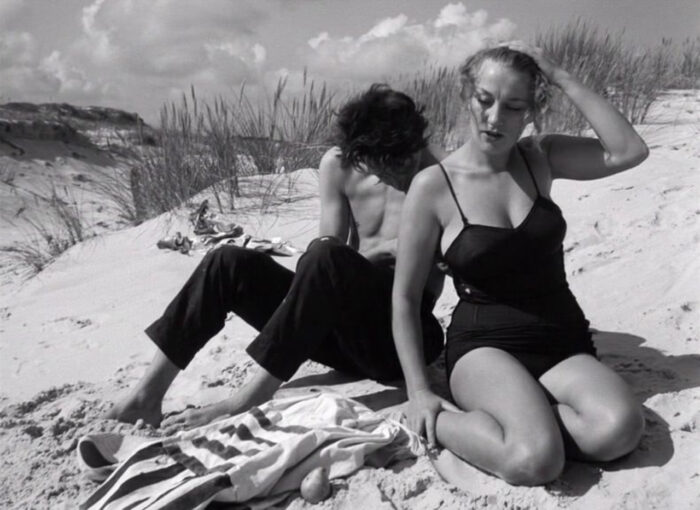They have no names. They are the only people on the windy beach of an anonymous Baltic Sea resort town emptied for the year. They both suffer from memories about the horrors of WWII. He seems to be suicidal. Could she maybe save him – if she has enough energy left to save herself first?
Tadeusz Konwicki knew what he was talking about in his first very short fiction feature: As a soldier of the Armia Krajowa, he fought the Nazis from the onset of his fatherland’s occupation till almost the final days of war. Originally a writer, Konwicki was essentially an amateur when he embarked on making The Last Day of Summer; cinematographer Jan Laskowski functioned discretely as a co-director, looking after the purely technical aspects of the job; whose younger brother, Jerzy, again, was the film’s production manager, while their sister Irena Laskowska, finally, played the female lead; which is to say that the team was a very intimate, closely knit unit.
It’s remarkable that Konwicki was during the early 1950s one of the most celebrated young exponents of Socialist Realism in literature – for by the time of The Last Day of Summer, he had developed towards a more existentialist style that soon would turn even more aggressively towards the allegorical, grotesque, surreal. In that regard, this film is like a transitional work, whose austerity is much due to all those literary affectations lost as well as all those not yet gained.
Olaf Möller
